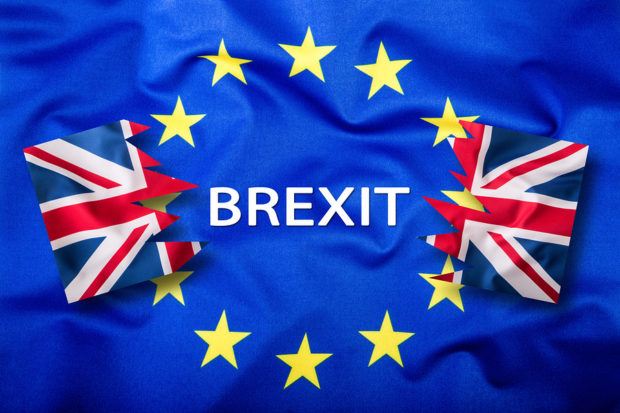The chances of the U.K. leaving the European Union are “50-50” if Parliament rejects Prime Minister Theresa May’s withdrawal agreement in January, International Trade Secretary Liam Fox said in a Sunday Times interview.
“If we were not to vote for that, I’m not sure I would give it much more than 50-50,” the veteran campaigner for Brexit told the newspaper. “For me that would induce a sense that we had betrayed the people that voted in the referendum.”
Fox told his fellow lawmakers that it was a “matter of honor” to back May and he’d rather accept an agreement that falls short of the ideal than risk Brexit’s failure.
“For me, the worst possible outcome of this process would be no Brexit,” he said in the interview.
The vote on the Brexit deal is set for the week of Jan. 14, May has said, without giving a precise date. The premier pulled a vote on the deal scheduled for earlier this month, acknowledging she did not have the support to win approval.
May has sought additional reassurances from the EU that might win the support of her own rebellious Conservative Party lawmakers and her allies in Northern Ireland’s Democratic Unionist Party, which provides the votes to give her a majority in the House of Commons.
Fox said he would like to see more EU concessions on the so-called Irish backstop, language in the deal meant to avoid the creation of a hard border between Ireland, which remains in the bloc, and Northern Ireland.
In an separate interview, European Commission President Jean-Claude Juncker suggested the U.K. and EU should “start the following day to prepare the future relations” should parliament approve the exit deal in January, he told German newspaper Welt am Sonntag.
‘Deeply Mistrust’
“I get the impression that the majority of British members of parliament deeply mistrust Mrs. May and the EU,” Juncker said in the interview published Sunday. “People imply that our goal is to keep the U.K. in the EU by any means. But that’s not our intention. We just want clarity on the future relations. And we respect the result of the referendum.”
The U.K. Labour Party leader Jeremy Corbyn has ruled out backing a second referendum on leaving the EU, and said the House of Commons should proceed with the vote on May’s withdrawal deal.He also said even if his party won a snap general election in 2019, he would go to Brussels and try to secure a better deal, if possible, in time to allow Brexit to go ahead on March 29.
“I think we should vote down this deal; we should then go back to the EU with a discussion about a customs union,” Corbyn told the Guardian in an interview published on Dec. 22.
Ahead of next month’s vote, the government has stepped up preparations for a no-deal withdrawal on March 29, including asking pharmaceutical companies and supermarkets to stockpile drugs and food, putting 3,500 troops on standby and hiring ferries to carry trucks across the channel to avoid potential snarls at Dover.
Lawmakers Return
While lawmakers return to Parliament on Jan. 7, Brexit Secretary Stephen Barclay will chair a meeting of ministers earlier in the new year in order to plan for Britain’s EU departure, according to a government official.
Separately, the Times reported that exiting the EU without a deal would trigger a cut in taxes and interest rates and the return of quantitative easing, according to the newspaper’s annual survey of economists.
All 52 economists polled, including four prominent Brexiteers, agreed that a disorderly Brexit would require intervention from the Treasury and the Bank of England that would leave the nation with a larger deficit. Of 45 who responded to a question on exit risks, 19 — or 42 percent — said there was at least a one-in-five chance Britain would leave without a deal.





















 Reinsurance Program Could Wipe Out Need for Calif. FAIR Plan: Legal Exec
Reinsurance Program Could Wipe Out Need for Calif. FAIR Plan: Legal Exec  Viewpoint: Runoff Specialists Have Evolved Into Key Strategic Partners for Insurers
Viewpoint: Runoff Specialists Have Evolved Into Key Strategic Partners for Insurers  Premium Slowdown, Inflation Factors to Lead to Higher P/C Combined Ratio: AM Best
Premium Slowdown, Inflation Factors to Lead to Higher P/C Combined Ratio: AM Best  Focus on Ski Guides After Deadly California Avalanche Could Lead to Criminal Charges, Civil Suits
Focus on Ski Guides After Deadly California Avalanche Could Lead to Criminal Charges, Civil Suits 


